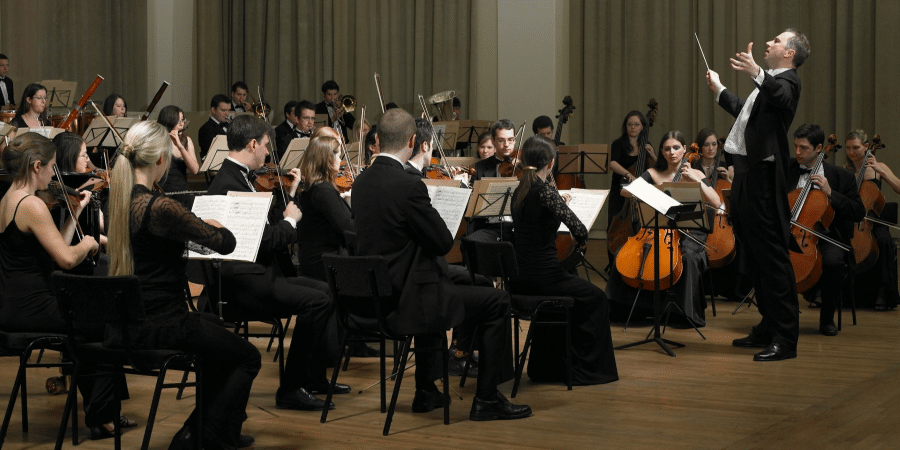Music, a universal form of expression, transcends boundaries, telling stories and moving people across cultures and time. However, it is not a static entity; it constantly evolves, shaped by technology, politics, social trends, and individual preferences. This article delves into the dynamic world of music genres, exploring their evolution and impact on the global music landscape.
What is a Music Genre?
A music genre is a group of songs sharing common musical elements, instruments, themes, or cultural roots. This classification is neither rigid nor fixed, and genres can overlap, merge, or vanish over time. The categorization of music into genres is subjective and can vary based on criteria such as rhythm, instruments, themes, or cultural origins.
How and Why Music Genres Change
Music genres evolve due to various factors, including technological advancements, political events, social trends, and personal preferences. These factors influence musicians to experiment with new sounds and create innovative compositions.
Technology
Advancements in recording techniques, musical equipment, and digital platforms have revolutionized music. The invention of the electric guitar in the 1930s gave rise to rock and roll, while synthesizers and drum machines in the 1970s and 80s led to the emergence of electronic dance music (EDM). The 2010s and 2020s witnessed the impact of streaming services and social media, facilitating the popularity of viral hits and independent artists.
Politics
Political events and movements inspire musicians and listeners, shaping music genres as a form of expression, criticism, or motivation. For instance, the civil rights movement in the 1960s influenced soul music and hip-hop. At the same time, global issues in the 21st century, such as terrorism and social justice, have shaped contemporary genres like grime, trap, and psychedelic rock.
Social Trends
Fashion, lifestyle, subcultures, and generational preferences drive demand and identity for music fans. The hippie movement popularized psychedelic rock, the disco craze boosted dance music and funk, and the grunge scene reflected the angst of Generation X.
Personal Preferences
Individual factors such as personality, mood, age, gender, education, or experience shape personal music preferences. People may be drawn to specific genres based on their feelings, values, beliefs, or goals, and these preferences can change over time.
The Evolution of Specific Music Genres
Hip-Hop/Rap
Hip-hop, often grouped with rap, is the most popular genre in the US market, accounting for 28.2% of total album consumption units in 2020. Hip-hop/R&B dominates among listeners aged 12-35, with artists like Drake, Cardi B, Post Malone, and Travis Scott leading the genre.
Rock
Enduring and influential, rock music has various sub-genres, including hard rock, metal, punk, indie, alternative, grunge, and more. Iconic bands like The Beatles, Led Zeppelin, Queen, AC/DC, Nirvana, U2, and Coldplay have shaped the genre.
Country
Originating in the Southern US, country music is characterized by acoustic instruments and themes like love, heartbreak, faith, or family. Artists like Johnny Cash, Dolly Parton, Garth Brooks, and Taylor Swift have left an indelible mark on the genre.
R&B
Originating in African-American communities in the 1940s, R&B features soulful vocals and blends blues, jazz, gospel, and funk. Influential artists include Ray Charles, Aretha Franklin, Marvin Gaye, Stevie Wonder, Whitney Houston, Beyoncé, and Rihanna.
Folk
Folk music is acoustic and often reflects identity, history, or struggles, encompassing traditional music from various cultures. Renowned folk musicians include Bob Dylan, Joan Baez, Simon & Garfunkel, Leonard Cohen, Joni Mitchell, and Bob Marley.
Jazz
Originating in New Orleans, jazz features complex rhythms, syncopation, swing, and improvisation. Legendary jazz musicians include Louis Armstrong, Duke Ellington, Charlie Parker, Miles Davis, John Coltrane, Ella Fitzgerald, and Billie Holiday.
EDM (Electronic Dance Music)
A genre made with electronic instruments, EDM includes sub-genres like house, techno, trance, dubstep, and more. Prominent artists include Daft Punk, The Chemical Brothers, Tiësto, Calvin Harris, and Skrillex.
Soul
Emerging in the late 1950s and early 1960s, soul music has emotional vocals, catchy melodies, and a strong sense of groove. Iconic soul singers include James Brown, Otis Redding, Sam Cooke, Marvin Gaye, Aretha Franklin, and Al Green.
Funk
Funk features syncopated rhythms, complex bass lines, and a strong emphasis on the “one” beat, originating as an offshoot of soul in the mid-1960s. Influential funk musicians include James Brown, Sly and the Family Stone, George Clinton, Parliament-Funkadelic, and Prince.
Reggae
Originating in Jamaica in the late 1960s, reggae features a distinctive offbeat rhythm and lyrics, often addressing social and political issues. Renowned reggae artists include Bob Marley, Peter Tosh, Jimmy Cliff, and Burning Spear.
Disco
Emerging in the early 1970s as a reaction to rock dominance, disco is characterized by a four-on-the-floor beat and catchy vocals. Disco artists include Donna Summer, Bee Gees, Chic, ABBA, and Gloria Gaynor.
Punk Rock
A rebellion against mainstream rock in the mid-1970s, punk rock features fast tempos, distorted guitars, and anti-establishment lyrics. Influential punk rock bands include The Ramones, The Sex Pistols, The Clash, Green Day, and Blink-182.
Classical
Classical music features complex structures, sophisticated harmonies, and expressive dynamics, encompassing a broad range of styles from the 11th century to the present. Celebrated composers include Bach, Mozart, Beethoven, Chopin, and Tchaikovsky.
House
Emerging in Chicago in the early 1980s as a sub-genre of EDM, house music features a four-on-the-floor beat and repetitive bass lines. Prominent producers include Frankie Knuckles, Marshall Jefferson, Larry Heard, Daft Punk, and David Guetta.
Techno
Originating in Detroit in the mid-1980s, techno music features fast tempos, minimalistic arrangements, and a strong emphasis on rhythm. Renowned techno producers include Juan Atkins, Derrick May, Kevin Saunderson, Jeff Mills, and Richie Hawtin.
Indie Rock
A sub-genre of alternative rock, indie rock emerged in the 1980s and 1990s, characterized by a DIY ethos and unconventional song structures. Popular indie rock bands include The Smiths, Pixies, Sonic Youth, Radiohead, Arcade Fire, and The Strokes.
Afrobeats
Afrobeats originated in Nigeria and Ghana in the 2000s, a fusion of African and Western music with catchy melodies and a diverse mix of genres. Successful Afrobeats artists include Wizkid, Davido, Burna Boy, Tiwa Savage, Mr. Eazi, Tems, CKay, and Amaarae.
















